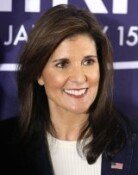Patience still needed amid Bank of Korea’s potential rate cuts
Patience still needed amid Bank of Korea’s potential rate cuts
Posted July. 12, 2024 08:08,
Updated July. 12, 2024 08:08
The Bank of Korea's Monetary Policy Committee decided to keep the benchmark interest rate at 3.5%, continuing a record 18-month freeze that began in January last year. Despite a slowdown in inflation, the central bank has opted to maintain its tight monetary policy stance in light of household debt, housing prices, and exchange rates.
During a briefing yesterday, Bank of Korea Governor Lee Chang-yong hinted at potential future policy shifts, stating, "The groundwork has been laid for changing lanes and making a directional shift at an appropriate time." Two committee members suggested the possibility of a rate cut within the next three months, noting that with the consumer price inflation rate at 2.4%, remaining in the 2% range for the third consecutive month, the time may be ripe for discussing a rate reduction.
However, some caution that it's premature to talk about altering the monetary policy direction. The U.S. Federal Reserve is expected to cut rates soon, but with the interest rate gap between the U.S. and South Korea at a record two percentage points, South Korea has no compelling reason to act first. The won-dollar exchange rate has recently fluctuated around the 1,380 mark after peaking at the 1,400 level in April. A hasty rate cut amid a strong dollar could lead to a steep depreciation of the won, potentially reigniting inflation.
Rising household debt and a worrying uptrend in housing prices also pose risks. At the end of last month, household loans from deposit banks reached KRW 1,115.5 trillion, an increase of KRW 20.5 trillion since the end of last year. This surge in household lending in the first half of this year is five times greater than in the same period last year. Housing prices in Seoul have risen for 16 consecutive weeks, with increases particularly pronounced in Seoul and the surrounding metropolitan area. Misguided signals of a rate cut could exacerbate the rapid growth in household debt and soaring housing prices.
Admittedly, the side effects and fatigue from prolonged high interest rates cannot be ignored. The high rates have delayed domestic economic recovery and worsened funding difficulties for businesses. The government, the ruling party, and the Korea Development Institute (KDI) have all pressured the central bank to consider a rate cut. However, the potential backlash from a premature rate cut could be much more severe than expected. Now is the time to maintain a consistent and cautious monetary policy, carefully weighing inflation and economic conditions. After all, patience is still needed.







